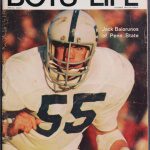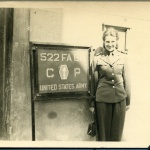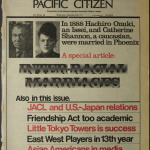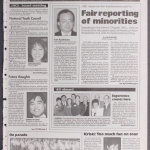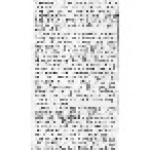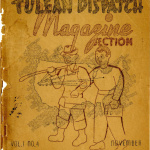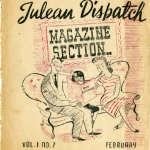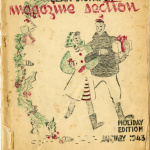Committee on War Information
The Committee on War Information (CWI) was an interdepartmental policy-making group created for the purpose of establishing the basic framework of the federal government’s wartime domestic information policies. It was chaired by Archibald MacLeish , a famed poet and, at the time of Pearl Harbor, the director of the Office of Facts and Figures (OFF). Other principal members included the attorney general, postmaster general, assistant secretary of war, and assistant director of the Office of Censorship. Representatives were also sent from the Departments of the Treasury, Agriculture, Navy, State and several other agencies. Since its establishment on December 15, 1941, the CWI held sessions on a weekly basis and discussed various issues concerning public information and press control.
Strictly speaking, the CWI had neither legislative nor executive authority, but it exerted a far-reaching, and often conclusive, influence on the policymaking of the wartime Roosevelt administration. In a press conference on January 21, 1942, MacLeish declared that "we [of the OFF] have authority to make programs for information on war effort. [But] we make those programs after consultation and advice with and under the direction of the Interdepartmental Committee on War Information." Another OFF official explained to the representatives of the daily and weekly press that "[t]he decisions of the CWI guide the activities of all the various agencies in the field of public information." [1]
What to do with the Japanese "enemy language" press at home was one of the major issues the CWI discussed. As the United States declared war against Japan, the federal government faced the difficult question of how to treat the mass media written in the unfamiliar language of her Asian enemy. As of December 1941, there were more than a dozen Japanese-language newspapers on the West Coast alone.
Regarding the "enemy language" press problem, the government was divided into two schools of thought: one advocating immediate termination and the other calling for continuation under a certain degree of control. Although some small papers were forced to shut down by the FBI's arrests of Issei publishers and editors, larger ones managed to continue publication even after Pearl Harbor.
The former school consisted of officers of the armed forces who demanded the immediate and outright ban of Japanese-language journalism. Seeing it as a serious menace to national security, these military officers, particularly those of the Western Defense Command and Fourth Army (WDC), claimed that, unless suspended promptly, this press would be misused by Japanese agents for conspiracies and subversive acts. As one War Department officer wrote, they "recommended that these [Japanese] papers be allowed to go out of business and thus remove a possible source of transmitting Japanese propaganda hidden in the complex Japanese language." [2] This view was an extension of the army's logic that it constituted a "military necessity" to uproot all "potentially dangerous" people of Japanese origin from the West Coast.
The latter school preferred a more moderate and restrained approach. This group consisted of relatively liberal-minded officials of civilian agencies in charge of information-gathering and public relations works, such as the Department of Justice, Post Office Department, Office of Censorship, and Office of Facts and Figures (OFF), which was integrated into the Office of War Information (OWI) in June 1942. These officials maintained that even in wartime the federal government must uphold the First Amendment freedoms to the maximum because the nation entered the war to globalize what President Roosevelt called "four freedoms," including the "freedom of speech and expression." One such figure, OFF Director MacLeish stated: "There are plenty of people who will tell you that ... government, through its law-enforcement agencies, should crack down [and] suppress all publications of [a] divisive and defeatist nature. I don't believe it. ... The press is justified in defending its right to criticize, and should and must defend it at all costs." [3] In their opinion, the Japanese-language press was no exception.
Since the military and civilian officials had little in common in their understanding of the press freedom of Japanese-speaking minorities, the dispute was brought to the CWI for settlement. The military group proposed either to suspend all non-English publications or, at the very least, prohibit those written in the three Axis "enemy languages," namely German, Italian, and Japanese. The civilian group recommended a more restrained measure, calling for enforcement of the existing espionage statutes against some seriously problematic publications or enactment of a new press control law that would enable civilian officials to flexibly police the foreign language press.
On April 6, 1942, the CWI made a decision in favor of the civilian group. The committee concluded that "the foreign-language press should be subject to further control" but short of blanket suppression as proposed by the military group, claiming that it would be necessary to make a new federal act to exercise such press control. Thus, the civilian group won the political tug-of-war and took the initiative in framing the federal government's policy toward the Japanese-language press. [4]
What was more significant, however, was that the CWI's decision was nullified at the end as mass exclusion of the West Coast Nikkei took effect. The army's forcible removal of Japanese Americans was a de facto death sentence for most Japanese American newspapers on the continental United States since they were located within prohibited military zones. The San Francisco Nichi Bei , which closed in mid-May 1942, was the last Nikkei paper on the West Coast.
The only exceptions were the three relatively small papers in interior states: the Utah Nippo in Salt Lake City, and the Kakushu Jiji and Rocky Nippon (later Rocky Shimpo ) in Denver. Civilian officials of the War Relocation Authority (WRA) allowed Japanese Americans in "relocation centers" to have their own native-language publications, but these camp newspapers were born after mass incarceration. The Army's Wartime Civil Control Administration (WCCA) entirely prohibited publication in Japanese within "assembly centers." In Hawai'i where martial law was declared, two Japanese-language dailies, the Hawaii Hochi and Nippu Jiji , continued publication in wartime under military censorship.
For More Information
Mizuno, Takeya. Nikkei America jin kyosei shuyo to journalism: Liberal ha zashi to nihongo shinbun no dainiji sekai taisen [Japanese American Mass Incarceration and Journalism: Liberal Magazines and Japanese-Language Newspapers during World War II]. Yokohama, Japan: Shunpu Sha, 2005.
———. "The Federal Government's Decisions in Suppressing the Japanese-Language Press, 1941-42." Journalism History 33 (spring 2007): 14-23.
———. "Tekikokugo" journalism: Nichi bei kaisen to America no nihongo shinbun [The "Enemy Language" Press in Wartime: The Pacific War and Japanese-Language Press in the United States]. Yokohama, Japan: Shunpu Sha, 2011.
Footnotes
- ↑ Cited in Philip S. Broughton, "Government Agencies and Civilian Morale," Annals of the American Academy of Political and Social Science 220 (1942): 173; OFF, "Relation of the Press with the Office of Facts and Figures," February 10, 1942, RG 208, Entry 3D, Box 7, File Press Committee, National Archives at College Park.
- ↑ Ralph H. Tate, Colonel, General Staff Executive, to Milton Eisenhower, Director, WRA, April 24, 1942, RG 210, Entry 16, Box 429, File 69,033, National Archives at Washington, D.C.
- ↑ Archibald MacLeish, "The Responsibility of the Press: Address Delivered before the American Society of Newspaper Editors, April 17, 1942," in Archibald MacLeish, A Time to Act: Selected Addresses , reprint ed. (Freeport, NY: Books for Libraries Press, 1970), 12, 15.
- ↑ Franklin S. Pollak, Special War Policies Unit (SWPU), Department of Justice, to Lawrence M. C. Smith, Chief, SWPU, "Control of the Foreign-Language Press," June 23, 1942, RG 60, Entry SWPU, Box 7, File Foreign Language Press - FCC & Radio, National Archives at College Park.
Last updated Dec. 18, 2023, 5:53 p.m..

